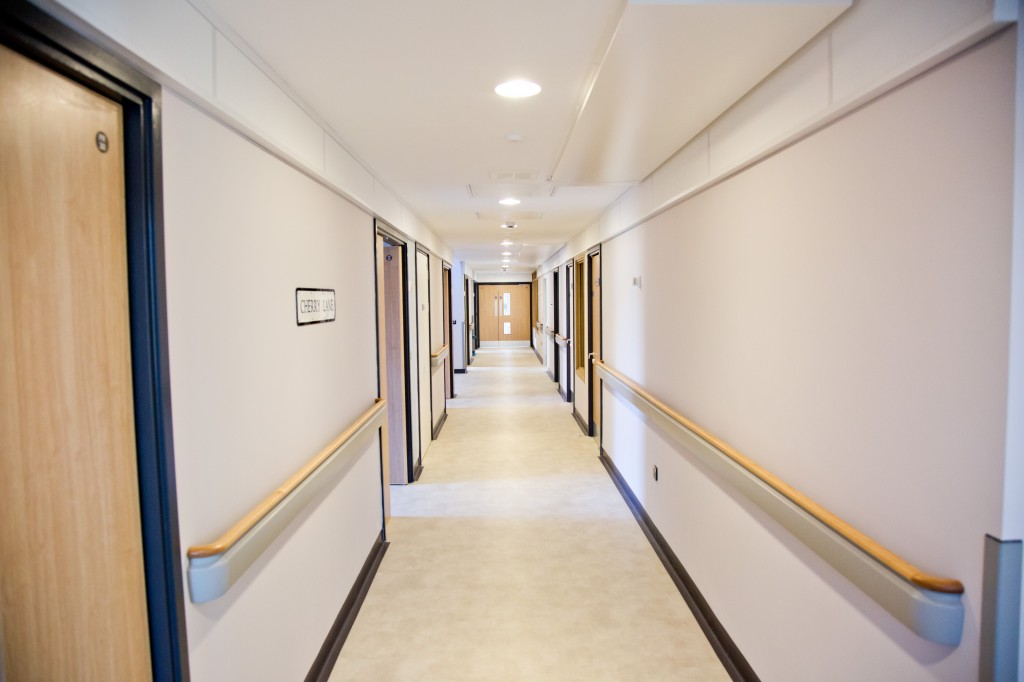British Gypsum ceiling tiles and plasterboard products have been used to help create a healthy indoor environment for patients, visitors and employees at a new unit of St Mary’s Hospital, Kettering.

When faced with the challenge of developing an interior that is as conducive to patient recovery as possible, main contractor, Balfour Beatty, made air quality one of its key considerations. After turning to British Gypsum for a solution, a system containing the manufacturer’s innovative ACTIVair technology was specified alongside a range of interior lining systems to meet the hospitals acoustic and impact resistance requirements.
ACTIVair technology absorbs volatile organic compounds (VOCs), which are harmful pollutants found in the air and converts them into harmless, inert compounds, preventing their re-emission back into the atmosphere. ACTIVair technology performs for more than 50 years, which is longer than the intended design life of most healthcare interiors.
British Gypsum’s Gyptone ceiling range with ACTIVair, was installed in four key areas of the existing hospital building as a retrofit measure. The lead nurse office, corridor areas and memory assessment services office were used to test the success of the products in-situ, providing Balfour Beatty with sufficient data to demonstrate the performance of the technology. Another benefit of this testing phase was that it allowed the client to choose preferred ceiling designs from the comprehensive range. Gyptone Ceiling tiles and plasterboard with ACTIVair technology were then specified throughout the new build hospital building.
The effectiveness of ACTIVair technology has been tested by the accredited Eurofins laboratory. The test shows that ACTIVair decomposes up to 70% of the formaldehyde in a controlled test environment.
The St. Mary’s hospital project tests showed that, following the installation of ACTIVair ceiling and plasterboard products, there was an average reduction of 42 per cent in levels of formaldehyde, a common VOC which is linked to health issues in high concentrations. Measurements taken in rooms without ACTIVairshowed significantly higher formaldehyde levels, in comparison to the same rooms with ACTIVair installed. All results were well below the maximum level recommended by the World Health Organisation of 0.08ppm.
Mark Walsh, project manager at Balfour Beatty, said: “We were asked to create a healthy environment at St Mary’s Hospital to improve patient wellbeing, and British Gypsum’s ACTIVair seemed perfect for the job. We were able to offer an innovative solution for Northamptonshire Healthcare NHS Foundation Trust (NHFT) to address the issue of indoor air quality and the results speak for themselves – the innovation has reduced the concentration of formaldehyde in the atmosphere, improving the environment for patients and staff at the hospital.
“In addition to the end-user benefits, the ACTIVair technology works through a paint finish, the products are easy to install, and they offer the same fire, acoustic and durability performance as the standard ceiling and plasterboard ranges – important factors that we have to consider when selecting new solutions.”
Neil Austin, project manager at NHFT, said: “NHFT always looks for opportunities to improve the environment for patients, visitors and the staff. The trial of ACTIVair products in existing buildings and use in the new unit further confirms our commitment to look at all aspects of care for our stakeholders.”
GypWall Classic, GypWall Robust, GypWall QUIET and GypWall QUIET SF systems were used to meet the projects acoustic and duty requirements in accordance with BES5234 Part2 1992.